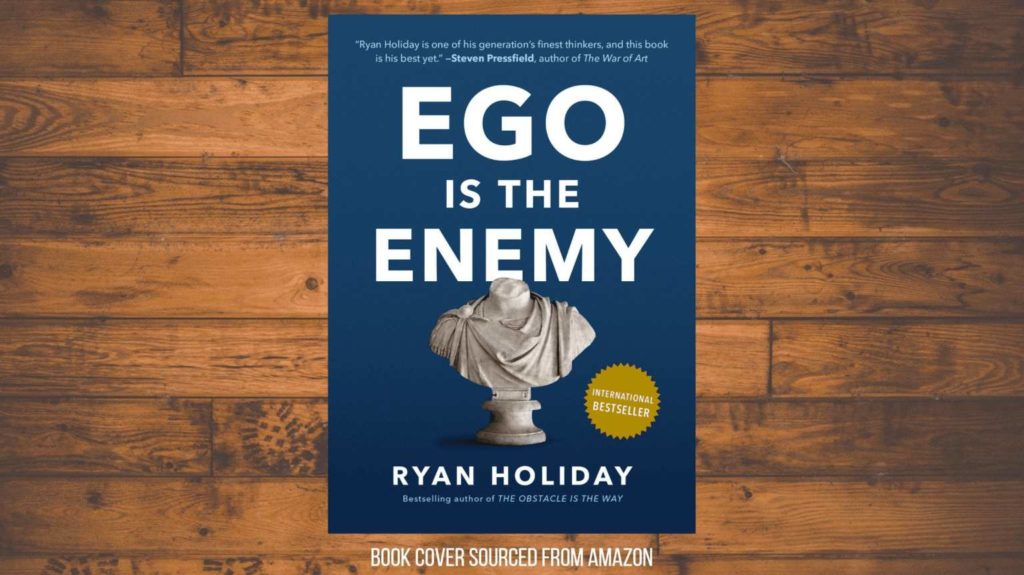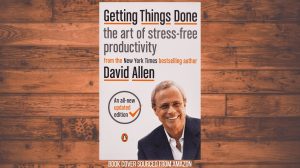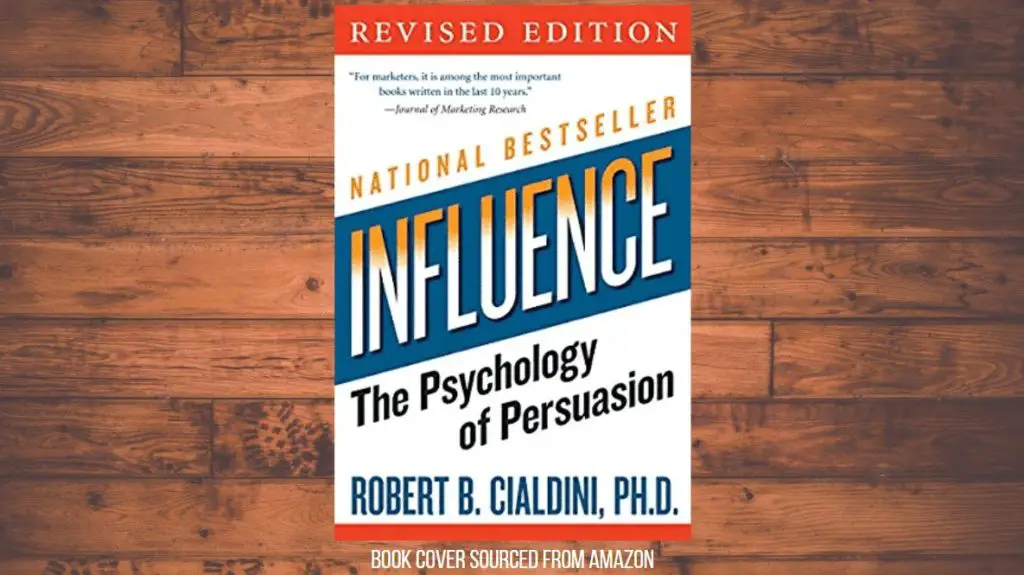This post may contain affiliate links, which means I’ll receive a commission if you purchase through my links, at no extra cost to you. Please read full disclosure for more information.
ABOUT
- Title: Ego is the Enemy
- Author: Ryan Holiday
- About the author: Ryan Holiday is a best-selling author of several books including Ego is the Enemy, Trust Me, I’m Lying, The Obstacle is the Way, Stillness is the Key, and Lives of the Stoics. His books use figures and lessons from ancient philosophy to help readers in the modern everyday life. Before he was 20 he worked under the renowned author Robert Greene, who is most recognized for the book . He also worked the corporate life for American Apparel and founded the creative agency Brass Check. The 48 Laws of Power
- Pages: 256
- Published: 2016
- Link to book
HIGH-LEVEL SUMMARY
Ego is the Enemy is influenced by stoic philosophy and the classical thinkers in history.
Ryan Holiday wrote this book to help his readers with recognizing, suppressing, and avoiding ego. This is a book he wishes he had during the critical points in his life.
According to Ryan, each of us is either aspiring, succeeding, or failing in any endeavor.
With that, the book is organized into three parts: Aspire, Success, Failure. The book draws on stories and examples from literature, philosophy, and history to help illustrate how ego has played out for others.
In some stories, you’ll learn how devastating ego can be. In other stories, you’ll read about those who conquered ego and how you can do the same.
Topics covered in the book include:
- Ego and this era of social media and self-promotion
- Becoming a student and remaining a student
- How passion can backfire on you
- What entitlement, control, and paranoia can do to you
- Why you shouldn’t tell yourself a story
- Succeeding after first failing hard
- Dangers of early pride
- Maintaining sobriety (and not from drugs and alcohol)
Ego can be blinding and prevents us from seeing things objectively. It will tell us what we want to hear. It will tell us we are great. However, the truth is eventually revealed and ego can cause one’s downfall if it isn’t managed. That won’t be you if you read this from cover to cover and implement what you learn.
RECOMMENDATION
I highly recommend Ego is the Enemy. The book is just over 250 pages, so it isn’t too big of a task to read through it. The benefits you take from the book will last a lifetime. Everyone will have aspirations, find success, and also fail many times. Ryan Holiday teaches you how to deal with these situations.
Instead of solely learning from your own mistakes, you can read the stories shared in the book and learn from the mistakes of others. Ego may or may not be a problem for you at the moment. If you currently feel that your ego is negligible, this book will help keep it that way. If you have an ego problem, this book will help humble you.
If you like this post, you’ll enjoy these as well:
- Book Review: The Little Book of Stoicism by Jonas Salzgeber
- Fixed Mindset vs Growth Mindset
- Internal Locus of Control (and Why It’s Important to Success)
- The Single Best Way to Improve Yourself and Grow in Your Career
- What is Emotional Intelligence and Its Importance for Success
TOP 25 TAKEAWAYS
- In no particular order
1. Wherever you are, whatever you’re doing, your worst enemy already lives inside you: your ego.
2. Just one thing keeps ego around—comfort. Pursuing great work—whether it is in sports or art or business—is often terrifying. Ego soothes that fear. Ego tells us what we want to hear, when we want to hear it.
3. At any given time in life, people find themselves at one of three stages: aspiring, success, failure. We’re aspiring to something. We have achieved success. Or we have failed—recently or continually.
4. If your belief in yourself is not dependent on actual achievement, then what is it dependent on? The answer, too often when we are just setting out, is nothing. Ego.
5. Our cultural values almost try to make us dependent on validation, entitled, and ruled by our emotions. Parents and teachers raised us focusing on building our self-esteem. Now more than ever, our culture fans the flames of ego. It’s never been easier to talk, to puff ourselves. Examples: LinkedIn, Instagram, Facebook.
6. The ability to evaluate one’s own ability may be the most important skill of all. Without it, improvement is impossible. And certainly, ego makes it difficult every step of the way.
7. It’s a temptation that exists for everyone—for talk and hype to replace action. In actuality, silence is strength—particularly early on in any journey. Make moves in silence and let your actions and results talk.
8. Research shows that while goal visualization is important, after a certain point our mind begins to confuse it with actual progress. The same goes for verbalization. Don’t confuse fantasizing and talking yourself up with actual progress. See yourself objectively.
9. Become a student and remain a student. The pretense of knowledge is our most dangerous vice, because it prevents us from getting any better. Studious self-assessment is the antidote. The art of taking feedback is such a crucial skill in life, particularly harsh and critical feedback.
10. Don’t be passionate. Passion typically masks a weakness. Its breathlessness and impetuousness and franticness are poor substitutes for discipline, for mastery, for strength and purpose and perseverance. Passion is form over function. Purpose is function, function, function.
11. Follow the canvas strategy, which is about helping yourself by helping others. We are too entitled nowadays and aren’t willing to work under others temporarily. We want to start at the top. Clear the path for the people above you and you will eventually create a path for yourself. Greatness comes from humble beginnings; it comes from grunt work. It means you’re the least important person in the room—until you change that with results.
12. Restrain yourself. Our own path, whatever we aspire to, will in some ways be defined by the amount of nonsense we are willing to deal with. For tough times, take it. Eat it until you’re sick. Endure it. Quietly brush it off and work harder. Play the game.
13. Beware of early pride. Pride blunts the very instrument we need to own in order to succeed: our mind. Our ability to learn, to adapt, to be flexible, to build relationships, all of this is dulled by pride. Receive feedback, maintain hunger, and chart a proper course in life.
14. Put in the work. Every time you sit down to work, remind yourself: I am delaying gratification by doing this. I am passing the marshmallow test. I am earning what my ambition burns for. I am making an investment in myself instead of in my ego.
15. Don’t tell yourself a story. Narrative is when you look back at an improbable or unlikely path to your success and say: I knew it all along. Instead of: I hoped. I worked. I got some good breaks. Or even: I thought this could happen. Writing our own narrative leads to arrogance.
16. Beware of the disease of me. This is when we begin to think that we’re better, that we’re special, that our problems and experiences are so incredibly different from everyone else’s that no one could possibly understand. Ego needs honors in order to be validated. Confidence, on the other hand, is able to wait and focus on the task at hand regardless of external recognition.
17. Meditate on the immensity. Find harmony and connection to the cosmos. Give yourself moments to reflect. Many great leaders and thinkers go out into the wilderness and come back with inspiration. Silence the noise around you to finally hear the quiet voice you need to listen to.
18. Maintain your sobriety. As you rise, maintain equilibrium and clear-headedness. Sobriety is the counterweight that must balance out success. Especially if things keep getting better and better.
19. Alive time or dead time? According to Robert Greene, there are two types of time in our lives: dead time, when people are passive and waiting, and alive time, when people are learning and acting and utilizing every second. Make your time alive time.
20. “Success is peace of mind, which is a direct result of self-satisfaction in knowing you made the effort to do your best to become the best that you are capable of becoming.”
21. Failing before you can succeed. The only way you can appreciate your progress is to stand on the edge of the hole you dug for yourself, look down inside it, and smile fondly at the bloody claw prints that marked your journey up the walls.
22. When we lose, we have a choice: Are we going to make this a lose-lose situation for ourselves and everyone involved? Or will it be a lose… and then win?
23. Always love. The paradox of hate and bitterness is that it accomplishes almost exactly the opposite of what we hope it does. The question we must ask ourselves is: Are we going to be miserable just because other people are?
24. Keeping our ego in check is like sweeping the floor of your home. Just because you have done it once, doesn’t mean the floor is clean forever. Every day the dust comes back. Every day we must sweep.
25. Any fool can learn from experience. The trick is to learn from other people’s experiences.
WHAT I LIKED
Use of historical figures and stories to demonstrate points
To help demonstrate the points the author wanted to prove, he used stories of historical figures and leaders. This includes Seneca, Howard Hughes, Elanor Roosevelt, Ben Franklin, Jackie Robinson, Genghis Khan, and more.
These stories were entertaining but also demonstrated how ego, or lack of ego, impacted the lives of these figures. The book mentions a quote from Bismarck saying that any fool can learn from experience. The trick is to learn from other people’s experiences.
Through the stories of historical and pop-cultural figures, Ryan Holiday is enabling you to learn from other people’s experiences.
Covered the phases of aspiration, success, and failure
I liked the way the book was structured. By separating the three parts for aspiration, success, and failure, I feel like the book covered all aspects of ego. Ego isn’t just prevalent once you are successful. It can rear its head during your aspirational phase and during your failures.
Ego is the Enemy gives you advice to tackle ego whenever it shows during any of the three phases.
BENEFITS TO YOUR LIFE AND CAREER

Find success, peace, and contentment
By avoiding the pitfalls of ego, you will have a higher chance of finding success and maintaining that success. Humility will bring satisfaction and peace into your life.
You won’t be worrying about what everyone else has that you don’t. You won’t care what others think of you. This will take you far in life and your career.
Remain levelheaded as you succeed
Ego is the Enemy has an entire section of the book dedicated to “success.” You’ll learn what to do and what to avoid as you climb the ladder and start having success. Many get a taste and let it go to their heads, which leads to their downfall.
You’ll learn how to stay levelheaded so you aren’t derailed.
Rise up by helping others rise up
The canvas strategy chapter will open your eyes up to the benefits of being an apprentice or junior to someone else. You can help the person above you shine and achieve, which can result in you rising up with them.
An example relevant to you is your boss in the workplace. With your boss as a mentor, you can learn from him and her. If you help your boss look good, they will get promoted. If you are a large part of why they look good, your boss will promote you as well so you can continue to output good work.
Never believe you are too good for this.
Lifelong learning
The ego tells us that we know it all. That we’ve arrived. This thinking will lead to a plateau in our progress and we will remain stagnant.
Ryan Holiday expresses why it is important to remain a student and become a lifelong learner. Without an ego, you’ll understand that you can learn so much more. By showing a willingness to learn, you’ll continue to obtain knowledge and develop skills that will propel you higher.
10 ACTIONS YOU SHOULD TAKE
1. Be real with yourself and accept that ego is there. Then subject it to scrutiny and criticism. Self-examine yourself.
2. Catch yourself when you’re seeking the need for validation. It may be from a parent, a boss, or followers on social media.
3. Be humble in your aspirations, gracious in your successes and resilient in your failures.
4. Practice and develop the skill of evaluating your own ability.
5. Realize when you are visualizing and verbalizing too much. At a certain point, it becomes detrimental and you need to take action.
6. In your career, help make your bosses look good and success will find its way to you. Help raise the tide and all ships will rise.
7. Practice restraining yourself during tough times. Realize tough times are temporary and they are making you stronger and more resilient.
8. Take time to venture off into the wilderness to meditate and reflect. Go on a hike, to the beach, or wherever you can be alone, clear your mind, and feel connected with nature.
9. Failure will surely happen. Use it as a lesson. Learn from it. Don’t waste time sulking or mourning. Make the time “alive time” rather than “dead time.”
10. Always remain a student. Never believe you know it all.
RESOURCES
Ego is the Enemy can be found on Amazon at this link here if you are interested in reading.



